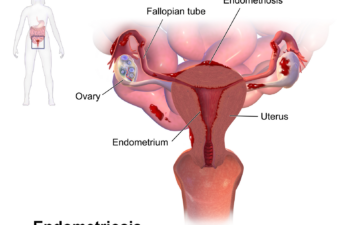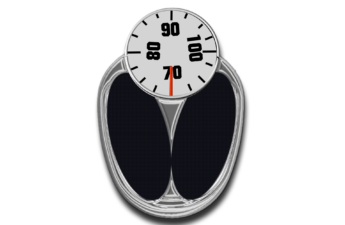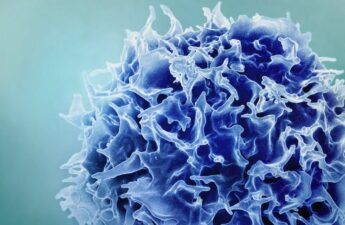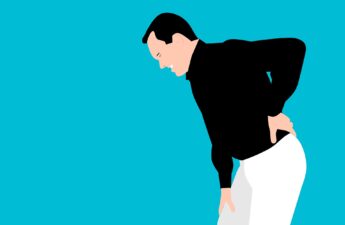Author: LocalHealthGuideEditor
Endometriosis: It’s time to change the pattern of pain, stigma and barriers to diagnosis and treatment
One of the significant challenges faced by people with endometriosis is receiving a diagnosis. Patients experience an average delay of 5.4 years from the onset of symptoms to diagnosis. The symptoms are similar to other reproductive health issues (such as polycystic ovary syndrome) or severe period pain, which can be confusing for non-specialist health-care professionals.
I’m trying to lose weight and eat healthily. Why do I feel so hungry all the time? What can I do about it?
Nick Fuller, University of Sydney Benjamin Franklin, one of the founding fathers of the United States, famously said nothing is certain except death and taxes. But I think we can include “you’ll feel hungry when you’re trying to lose weight”…
What does weight-inclusive health care mean?
Weight-inclusive health care means a focus on better health with no weight loss required.
Thinking of trying a detox? Here’s what you need to know first
Detoxes are prevalent on social media and spruiked (Australian slang: to promote) by brands offering detox products, celebrities and influencers. So if you’re thinking of trying a detox, here’s what you need to know.
This Thanksgiving − and on any holiday − these steps will help prevent foodborne illness
The Centers for Disease Control and Prevention reports that 1 in 6 Americans, or 48 million people, get sick from a foodborne illness each year. According to the CDC, more than 1 million of these people get sick from salmonella, which is the primary pathogen associated with poultry.
Immune health is all about balance – an immunologist explains why both too strong and too weak an immune response can lead to illness
Many social media posts push supplements and other life hacks that “boost your immune system” to keep you healthy and fend off illness. However, these claims are not based on science and what is known about immune function. Healthy immune systems don’t need to be “boosted.” Instead, the immune system works best when it is perfectly balanced.
The ‘doctor of nursing practice’ will see you now
Amid a shortage of doctors and an explosion in the number of nurse practitioners with doctorates, many nursing groups are pushing to expand what nurses can do without physicians’ supervision. Physicians, meanwhile, are pushing to keep nurse practitioners and physician assistants under their oversight, arguing that giving more autonomy to providers with less rigorous training could put patients at risk.
Meditation Is Big Business. The Science Isn’t So Clear.
For more than two decades, various studies have suggested that meditation and mindfulness — that is, being aware of the present moment — can help reduce and improve pain management, lending some credence to the notion that the brain can affect the body. Such results have helped the field grow into a multibillion-dollar industry, populated by meditation apps, guided workshops, and upscale retreats.
Yet the field has also faced sharp criticism from psychologists and researchers who say the health benefits are overstated and some of the research methodologically flawed.
Most people with chronic back pain naturally think their pain is caused by injuries or other problems in the body such as arthritis or bulging disks. But our research team has found that thinking about the root cause of pain as a process that’s occurring in the brain can help promote recovery.
Your biological age predicts dementia and stroke regardless of your actual age – new study
while we all grow older chronologically at the same pace, biologically, our clocks can tick faster or slower. Relying solely on chronological age – the number of years since birth – is inadequate to measure the body’s internal biological age.
Perimenopause usually begins in your 40s. How do you know if it has started?
Perimenopause usually begins in the early to mid-40s. Some people even begin perimenopause earlier, due to premature ovarian insufficiency or medical treatments such as chemotherapy or surgical oophorectomy (ovary removal).
How can I get some sleep? Which treatments actually work?
You might have tried breathing exercises, calming music, white noise, going to bed in a dark and quiet bedroom, eating different foods in the evening, maintaining a regular sleep pattern, or reducing caffeine. But after three to four weeks of what seems like progress, your insomnia returns. What next?
Amid Regulatory Gaps, Telehealth Prescribers Flourish
It’s easier than ever to get prescription drugs online. Should regulators be paying more attention?
Modern medicine has its scientific roots in the Middle Ages
How the logic of vulture brain remedies and bloodletting lives on today
Older adults want to ‘age in place,’ but their options are limited in most states
As America gets grayer, advocates are pushing for new types of housing. By Robbie Sequiera, Staff ReporterStateline As older adults begin to outnumber young people in the United States in the coming decade, advocacy groups are challenging states to shift…












